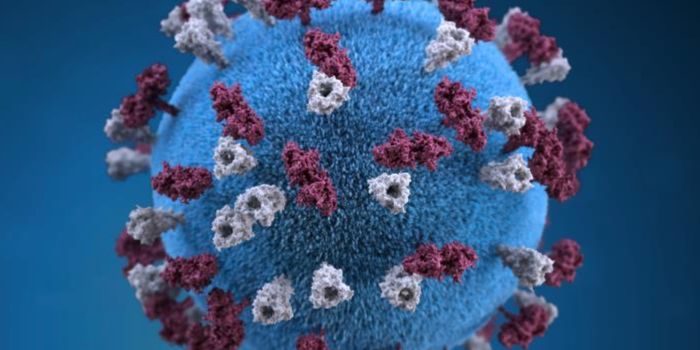Low T Cells Linked To High COVID Risk
German scientists have identified a connection between immune cell counts and the risk of developing severe, potentially life-threatening symptoms of COVID-19. The team, led by professor of virology, Ulf Dittmer, found that people who have low T cell counts at the time of infection have higher odds of developing a severe form of COVID-19. The study was published in the medical journal, The Lancet.
The numbers of a particular subpopulation of T cells, called cytotoxic T cells, in the blood were found to be central to this response. These immune cells protect the body by killing cancerous or virally-infected cells.
It’s not just the number of T cells that count. The ratio of cytotoxic T cells to another type of immune cell, neutrophils, was also found to be important. T cells and neutrophils serve different but complementary roles in the protective immune response and have strong regulatory effects on each other.
“If there are too many neutrophils in the blood, they tend to suppress the function of T-cells. It can, therefore, be assumed that an elevated number of neutrophils in COVID-19 patients might contribute to a decrease in T cell counts,” explained Dittmer.
Common initial symptoms following coronavirus infection include fever, cough, fatigue, and diarrhea. More severe symptoms typically develop around a week later, in which the conditions of these patients rapidly deteriorate as acute respiratory distress syndrome, or ARDS, sets in. As symptoms progress, COVID-19 has also led to heart, kidney and liver damage and, in the worst cases, death. Being able to identify patients most at risk would allow physicians to initiate intensive interventions earlier and improve clinical outcomes.
The team’s investigation looked at 40 COVID-19 patients in Wuhan, China. Their studies suggest that a simple blood test for T cell and neutrophil counts should be done to quickly pick out at-risk COVID-19 patients. These patients need to be monitored more closely and perhaps be treated at an earlier stage, said Dittmer.
Patients receiving medications or therapies that can damage T cells, such as chemotherapy, should also be more closely monitored given this finding.
The team’s finding also has implications for the development of a vaccine against the virus that causes COVID-19, SARS-CoV-2. A vaccine capable of shielding against infection may not only need to trigger the production of antibodies, but also activate T cell responses in order to confer robust protection.
Sources: Innovation Origins, The Lancet, The New England Journal of Medicine.









